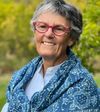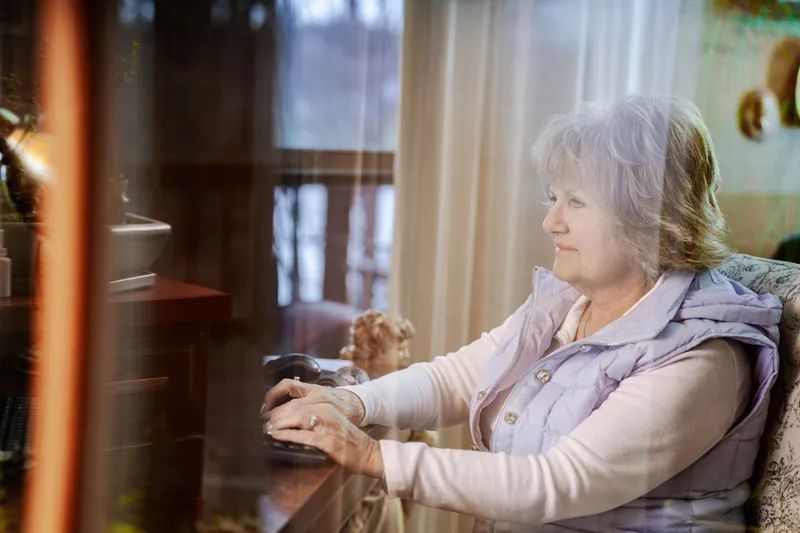
Changing the Stigma
Billings woman gives a voice to others like her living with dementia
Meeting Bonnie Erickson today, you’d never realize she lives with early-stage dementia. To see what she’s done since being diagnosed, you’d be astounded.
Bonnie was only 57 when she suffered a stroke. She was barely 58 when a follow-up MRI and further testing at the Mayo Clinic revealed she had mild cognitive impairment. Today, seven years later, the Billings woman faces her diagnosis with humor, optimism and a drive to help others who are traveling similar paths.
“When you hear the term ‘dementia,’ most people’s minds go to late-stage dementia,” she says. “Yes, that is part of the journey, but I want people to know there’s a whole lot of living before that.”
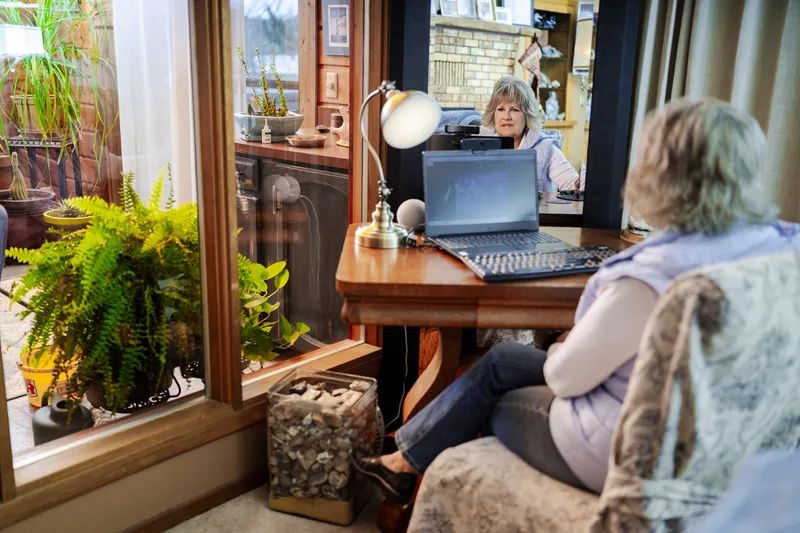
Bonnie’s positive approach didn’t come automatically. Even before her stroke, she’d struggled with brain fog and confusion — symptoms her doctors thought to be menopause-related. But then she suffered a stroke that left her stuttering, overly emotional, fatigued and confused. An MRI revealed that many silent strokes — too numerous to count — had accumulated deep within her brain. She was diagnosed with white matter disease and mild cognitive impairment.
“Otherwise, I’m a healthy girl,” she says now with a wry grin.
At the time, however, the diagnosis sent her world spinning.
“It was so frightening,” she says. “Once you get diagnosed, you automatically get catapulted into the grieving process.”
She tried to return to the job she had held for 17 years as a program analyst for the Department of Homeland Security. But the effort left her too drained. For 18 months, she struggled with denial before finally coming to a level of acceptance.
“You don’t get a diagnosis one day and get late-stage (dementia) the next,” she says. “But you don’t get a diagnosis and get a lot of hope, either.”
Like many who live with dementia, Bonnie values her friendships “that stay.” She realizes some drop away for lack of knowing what to say. But she encourages people to treat someone newly diagnosed just as they would a friend with any other serious health issue. And then she chuckles.
“It’s certainly not catchy,” she says.
During those first months and years following her diagnosis, Bonnie sought to connect with others on a similar journey. She scoured the internet but found nothing, other than caregiver support groups and just enough information to be dangerous.
“I really scared myself to death,” she says.
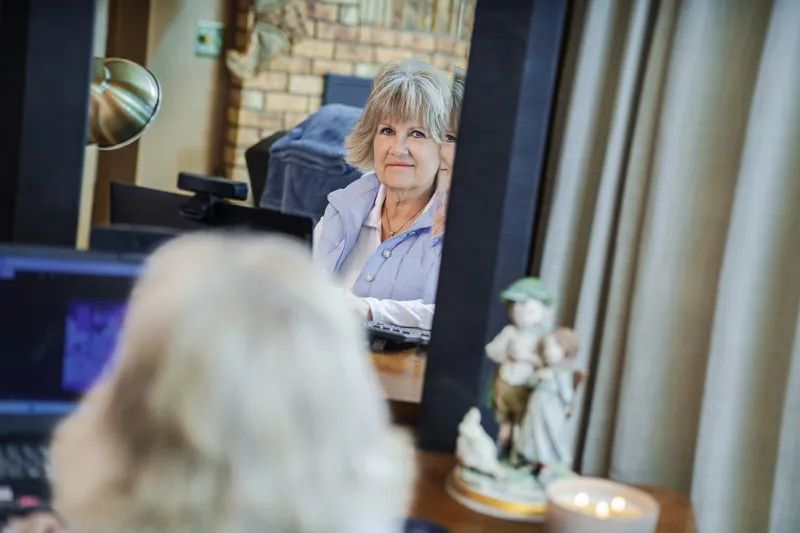
Then, she hit on a site posted by Brenda Roberts, a dementia educator in Michigan. Brenda was creating a small team of people who had recently been diagnosed with dementia. She promoted the concept of letting people with dementia speak for themselves and she thought their first-person input would be invaluable. The prospect piqued Bonnie’s interest, so she traveled to Michigan to join seven others who were similarly inspired by Brenda’s vision. Together they created a workshop they called “The Journey,” which they presented to an audience.
“It received rave reviews,” Bonnie says. “There was not a dry eye.”
From the power of that presentation was born the National Council of Dementia Minds.
Bonnie is one of eight founding members and current board chair of the organization, which is the first national nonprofit founded by and governed by those living with dementia.
“We’re trying to change the stigma, to increase awareness and promote a positive narrative,” she says. “Usually, people with a dementia diagnosis get spoken for or spoken about. This platform allows us to speak for ourselves. Our motto, is ‘nothing about us without us.’”
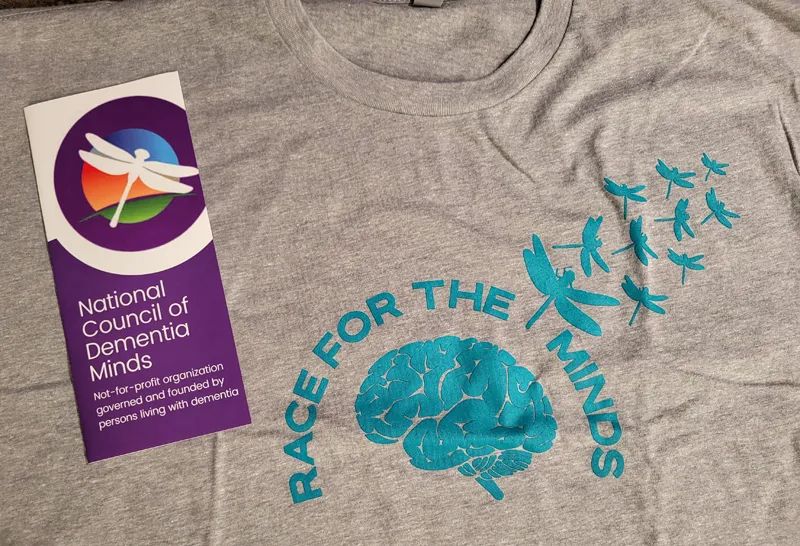
Dementia and strokes were not a stranger to Bonnie’s family. Her father died at age 57 after several strokes — the same age at which Bonnie had her life-changing stroke. As for dementia, Bonnie’s mother first showed signs of confusion and memory loss in her mid-60s. Though the cause was never diagnosed, Bonnie and her family cared for her mother until her passing in a memory care facility a decade later.
When Bonnie was first diagnosed with dementia, her son and her husband dealt with it by denial. Her daughter Lacey Abell, a nurse, responded by “jumping in to save the day.”
Since that time, Lacey has taken on the role of Bonnie’s “care partner.”
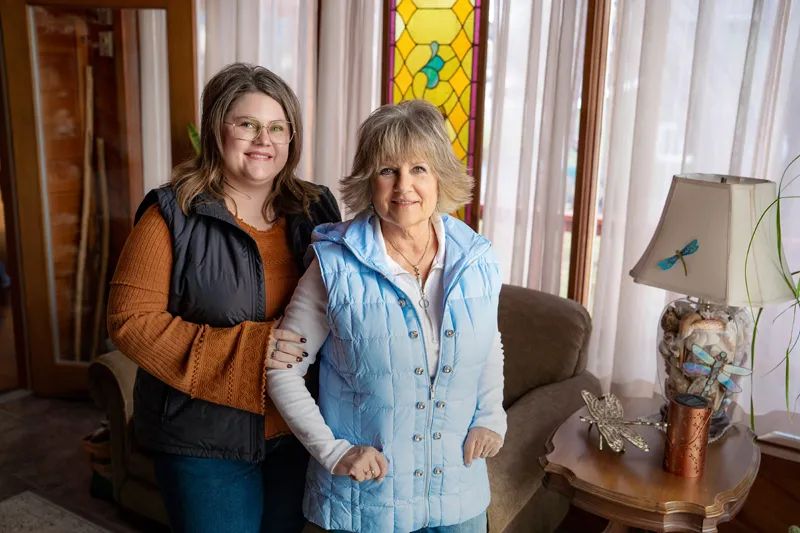
“I want to partner for my care,” Bonnie says. “I don’t want to be taken care of.” That means Lacey assists Bonnie when needed, particularly in attending doctors’ appointments and as a travel companion. Lacey admits she was a little “hovery” early on. Now she has learned to step back and encourage her mother’s independence. They both acknowledge that the relationship — and level of care — will change with time.
“As a nurse, I advocate for her,” Lacey says, “so they didn’t put her into a box.”
Lacey has also led the charge by organizing the Race for the Minds. The annual event serves as the only fundraiser for the National Council of Dementia Minds, which otherwise depends strictly on grants. To date the race has raised $65,000. Next year’s event is slated to take place on Aug. 17 in Billings. Both Bonnie and Lacey have been deeply touched by the stories they’ve heard from participants, including one who came from Florida to Billings just for the race.
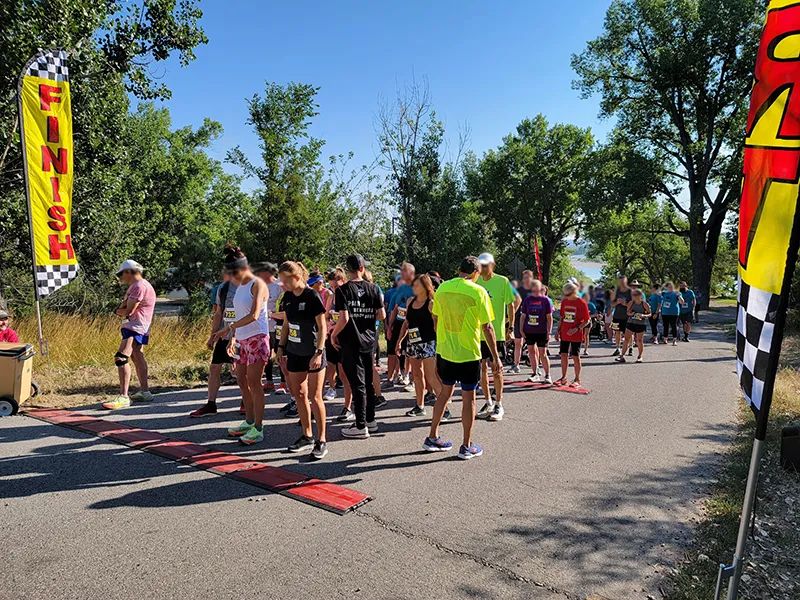
In the years since Bonnie’s mother lived with dementia, technology has offered numerous tools that make living with dementia much easier. Zoom sessions allow Bonnie to connect with her peers, Alexa tells her when the cake is done, and smart phones provide alarms and reminders that help keep Bonnie’s day on track.
“It’s huge,” she says.
Rather than hide in a corner, Bonnie takes an active role in trying to change the stigma associated with a dementia diagnosis. She attends meetings and travels to conferences related to dementia. She participates on Montana’s State Dementia Coalition and the Montana BOLD (Building Our Largest Dementia) Grant Steering Committee. In addition, she has been involved with the National Alzheimer’s Association Early Stage Advisory Group and she’s currently one of only two people testing a social recall app under development at Clemson University.
In appreciation of her broad efforts, Bonnie was honored with the National Maude Award, which recognizes groups and individuals who have developed outstanding projects and programs to enrich the lives of people with dementia.
While Bonnie’s efforts are far-reaching, she has also worked at the local level to expand Billings’ Memory Café, a place for those experiencing memory loss and their caregivers to get together with others facing the same challenges. Bonnie also participates in an activity at the Yellowstone Art Museum, sponsored by the Montana Alzheimer’s Association, that’s geared for people with mild cognitive impairment or dementia.
“We enjoy the featured gallery, share thoughts and then create art with the help of the docents,” she says. “It’s super fun.”
Bonnie’s sense of humor shines again as she tells of attending the YAM activity with a woman more than a decade older than she.
“People thought I was there with her, but she was actually there (to help) me,” Bonnie says smiling.
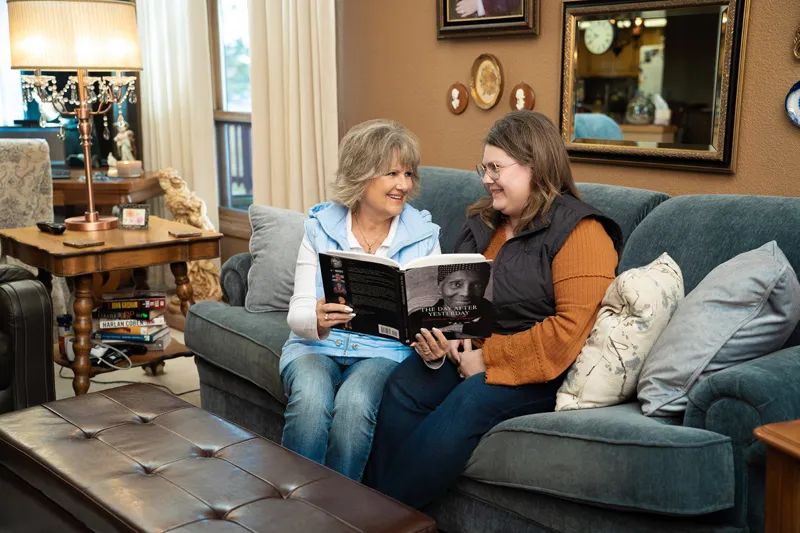
Bonnie is convinced that a hopeful outlook, bolstered by exercise and social interaction, have helped her keep her progression at bay. Her grandson, Kevin, 9, also adds an invaluable spark of joy to her life.
Has her dementia progressed? Bonnie asks the question and then answers herself.
“I can put on two or three miles in my house and get nothing done,” she says. “I’d go into a room and forget why I was there. I used to go back and the thought would come back to me. Now, it’s just not there. It’s under lock and key.”
She’s also reached the point where she’s not willing to cover up for lost memories. When someone asks the generic “do you remember?” she no longer pretends that she does.
“The stress of trying to remember can be is so difficult,” she says. “In all actuality, we do that on the outside but in reality there’s turmoil on the inside. So, I took that mask off.”
Instead, she rolls with the punches. What used to devastate her — such as tossing a valuable item in the trash — now hardly causes her pause.
“Today,” she says, “it’s ‘Oh, well, oops.’ I don’t know if that’s progression or acceptance.”
During the years since her diagnosis, Bonnie knows others through Dementia Minds who have died or whose dementia has advanced significantly. They say a person diagnosed with dementia will typically live another seven to 10 years, Bonnie explains.
“But I’ve met people who have been on their journey for 15, even 20 years,” she says and then smiles. “I’ve met my expiration date of seven years and I don’t feel remotely close (to the end).”
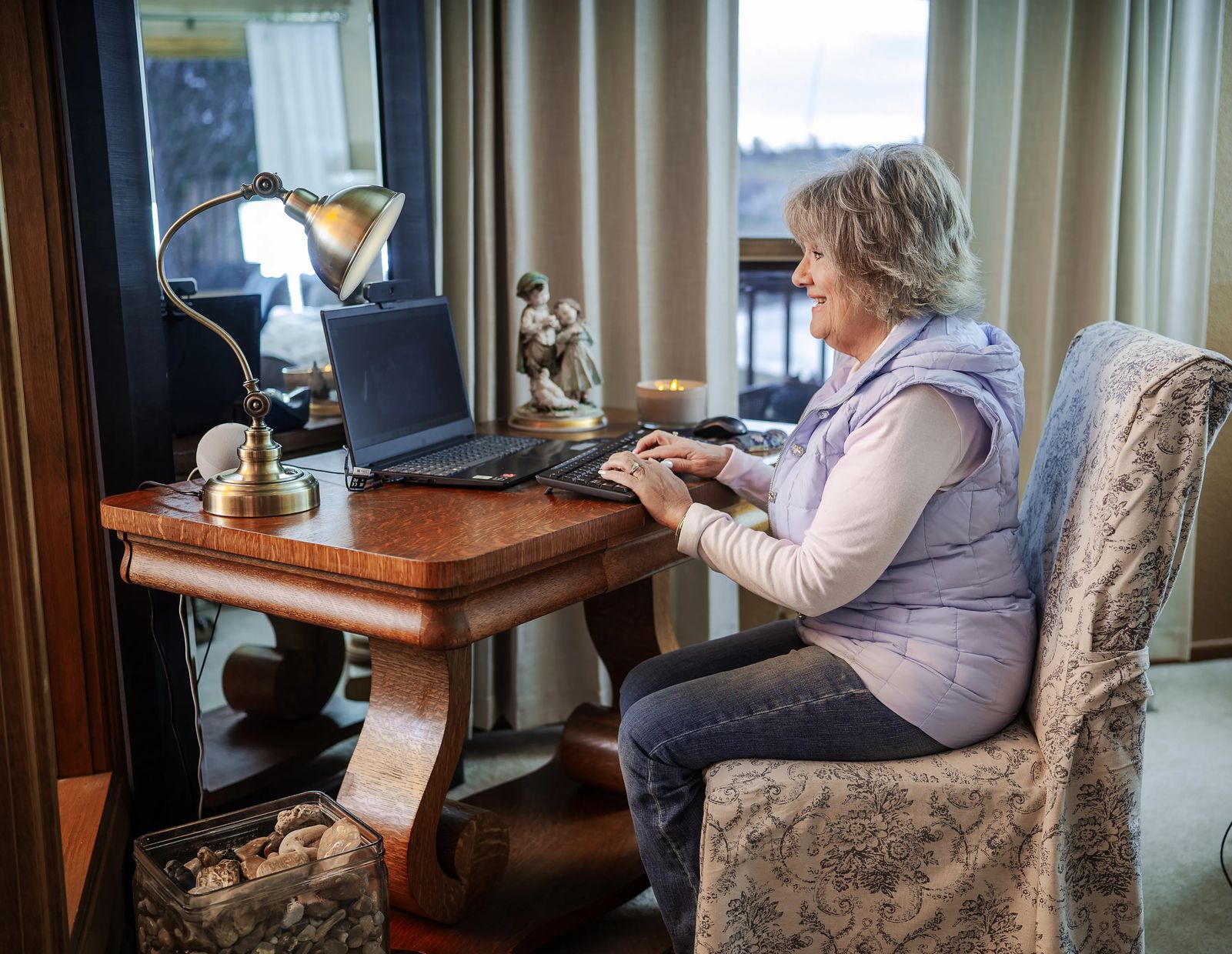
WHAT IS DEMENTIA?
Dementia is an umbrella term characterized by symptoms such as memory loss, confusion and disorientation that are associated with a number of different causes including Alzheimer’s disease, Lewy Body disease and vascular dementia (often linked to strokes). It requires a medical diagnosis.
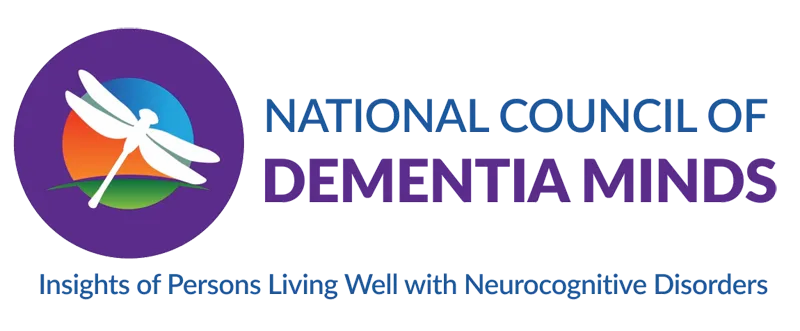
NATIONAL COUNCIL OF DEMENTIA MINDS
The National Council of Dementia Minds is composed of people living with dementia. Members range in age from their 40s into their 80s and come from all corners of the world. Founded in 2019, it advocates education and dialogue among people with neurocognitive disorders, healthcare providers, researchers, families, care partners and communities. The group strives to offer peer connections and hope-filled strategies to support living well with dementia. Find out more at www.dementiaminds.org


